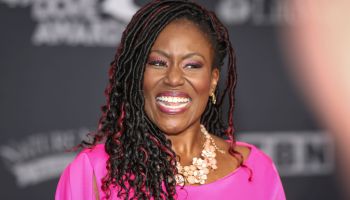Whenever an “ambitious research initiative” purports to have distilled the thoughts and feelings of women in their 20s, I bristle a little. A few weeks ago, it was The New York Times claiming we all had a collective failure to launch.
Whenever another such study produces a whole new word to define our enigma of a generation — this week it’s “transitionhood” — I roll my eyes.
In the coming weeks, Oxygen will present findings from the Chicago-based research outfit TRU that aim to paint the most accurate portrait to date of the “prevailing attitudes and desires of women in the chrysalis stage” (not my word — I’m quoting the Media Week article that announced the news).
Yes, the chrysalis stage. As in, we 20-somethings are much like butterflies, opting for a prolonged stay in the protective cocoon of transitionhood, a time when major life milestones (marriage, family, property purchase) are put aside in favor of a focus on career and fun.
My reaction to this news? Where’s the news part?
Over the past several years we have seen countless articles report on today’s post-grad woman: She’s career-driven, she isn’t defined by marriage, she’s focused on advanced education, she’d not concerned about waiting to have children. It’s a domino effect of soft metrics that you don’t seem to need an expensive study to figure out. If a woman focuses most of her attention on her career, then that woman focuses less attention on finding a partner, developing that relationship and introducing children into the mix.
A generalization, but one rooted in logic.
This study, though, takes it one step further. It delivers the very specific finding that “30 has emerged as a soft deadline for marriage, home ownership and career advancement, a development that has much to do with the pragmatism that informs today’s younger consumer.”
Let’s talk about that for a minute.
So, marriage by 30. As far as I see it, it’s a math-versus-fate debate.
On one hand, in a perfect world we could all start a mental timer at 22 that bleats “Time’s up! Time to get married! Where is he?!” the minute the clock strikes midnight on that birthday. And if so, that might be — as the article suggests — a pragmatic response to the realities of the specimens in the partner pool, the climbing of the career ladder, and the scientific realities of childbearing.
When I first read that, my gut went Please god no!, but my mind jumped to some (very generalization-based) math. And it does add up.
Fact: Your chances of experiencing complications with a pregnancy dramatically increase after age 35 and grow more serious every year after. So, if you want to have multiple children without risk of complication, starting that process after the age of, say, 34, is a vital consideration.
It takes approximately one year to plan a wedding, bringing us to engagement at age 33. Most couples date for a minimum of one year pre-engagement, making 32 the year you meet the guy. So we’re technically safe after the 30-year hump, but not if you want to date for more than a year, enjoy any time together as a married couple before children, or have more than two of them over one year apart once you’ve begun.
Yes, you can have children well into your 40s. Yes, you can meet a man and marry him three months later. Yes, you have the whole of your retirement to travel alone together. But we’re talking about a life defined by the pragmatic approach. Pragmatically speaking (based on factors rooted in science), if you want a certain kind of family and future, you should aim to get married somewhere around 30.
But here’s where I start to depart from the cut-and-dry calculations. First, I’m not sure I like the word “deadline” associated with love. Or the zero-sum way this study looks at my future. Like I’m going to make an effort to organize things so they all come together in this way, at this time? Or, say, if x, y and z don’t happen by 30, I’m going to give up on dating altogether and put all my chips on the snag-the-corner-office game?
Also fact: I am a living, breathing 20-something woman, but certainly not one who has set a soft deadline at 30. I do want all the things that that involves (marriage, children, home ownership), but when I evaluate major life decisions, it’s never from a vantage point of “How far will this one set me off my married-at-30 path?” In fact, I just left my stable career in New York and moved clear across the country to pursue a creative (read: unstable) career in Los Angeles.
I’m driven by the fact that I have passions and goals that are now accepted and encouraged by society, and there isn’t a particular timeline I have to follow. I would not, at this point, walk away from the right relationship or put off children if I felt ready, but there is no deadline looming in my mind.
In my mind, letting fate unfold always trumps having a to-do list in the Life Path department. And modern marvels do mean I have more choices. I know, for instance, that science has made advances that afford us safer childbearing in later years, and I know that I’d be more willing to adopt as a single 40-year-old than marry someone I didn’t love, just so I could cross “have kids” off that list.
I also know that while there will be fewer unmarried men the longer it takes for me to be ready to marry one, there will never be too few to make me marry the wrong one. And I know that successful careers can be launched at any given age by people who stayed singularly focused on reaching that goal without getting distracted by the number at which they reached it.
There will always be an age at which we’re doing things as a mass culture of Americans — losing our virginity, having our first child, making enough money to retire — but if that age is mainly driven by an external deadline rather than internal readiness, I’m afraid we’re going to have to add “having our first nervous breakdown” to the list.
So, next time you receive a survey with the question “At what year do you think you should get married?” don’t feel peer-pressured to circle option “C: 30 ” We don’t need more research crunching numbers to tell us how to live our lives.
I say leave it blank, or better yet, write in “When I’m ready.”












